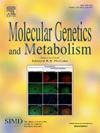Mechanistic insights into arimoclomol mediated effects on lysosomal function in Niemann-pick type C disease
IF 3.7
2区 生物学
Q2 ENDOCRINOLOGY & METABOLISM
引用次数: 0
Abstract
Niemann-Pick disease type C (NPC) is an ultra-rare, fatal neurodegenerative disease. It is characterized by lysosomal dysfunction with cytotoxic accumulation of unesterified cholesterol and glycosphingolipids in lysosomes, which causes neurodegeneration and peripheral organ dysfunction. Arimoclomol, an orally available small molecule, is the first FDA-approved treatment for NPC when used in combination with miglustat. Here, we present the results of a series of in vitro studies performed to explore the pathways by which arimoclomol targets the fundamentals of NPC etiology. While the precise cellular interactions of arimoclomol remain unclear, the increased translocation of the transcription factors EB and E3 (TFEB and TFE3) from the cytosol to the nucleus is a key initial step for triggering a cascade of downstream events that can rescue cellular functions. Activation of TFEB and TFE3 raises the expression rates of coordinated lysosomal expression and regulation (CLEAR) genes including NPC1 that are essential for the regulation of lysosomal function. The subsequent upregulation of CLEAR network proteins combined with increased unfolded protein response activation was shown to enlarge the pool of matured NPC1 capable of reaching the lysosome to reduce cholesterol accumulation. By also amplifying expression of CLEAR genes associated with autophagy, arimoclomol has the potential to act on different pathways and improve cell viability independent of NPC1 protein levels and functionality.
In summary, the findings presented illustrate how arimoclomol improves lysosomal function and potentially autophagy flux to decrease lipid burden in NPC patient fibroblasts.
阿利莫司洛尔介导的对 C 型尼曼镰刀菌病溶酶体功能影响的机理认识
C 型尼曼-皮克病(NPC)是一种极其罕见的致命性神经退行性疾病。该病的特点是溶酶体功能障碍,溶酶体中的未酯化胆固醇和糖磷脂具有细胞毒性蓄积,从而导致神经变性和外周器官功能障碍。阿瑞莫司洛尔是一种口服小分子药物,与米格鲁司他联合使用时,它是首个获得美国食品及药物管理局批准的治疗鼻咽癌的药物。在此,我们介绍了一系列体外研究的结果,这些研究旨在探索阿瑞莫司洛尔针对鼻咽癌病因的基本途径。虽然arimoclomol与细胞的确切相互作用仍不清楚,但转录因子EB和E3(TFEB和TFE3)从细胞膜向细胞核转位的增加是引发一连串下游事件的关键第一步,而这些下游事件可以挽救细胞功能。TFEB 和 TFE3 的激活会提高溶酶体协调表达和调控(CLEAR)基因(包括对溶酶体功能调控至关重要的 NPC1)的表达率。随后的 CLEAR 网络蛋白上调与未折叠蛋白反应激活的增加相结合,扩大了能够到达溶酶体以减少胆固醇积累的成熟 NPC1 池。通过同时扩大与自噬相关的 CLEAR 基因的表达,阿瑞莫科洛醇有可能作用于不同的途径,并提高细胞活力,而与 NPC1 蛋白水平和功能无关。
本文章由计算机程序翻译,如有差异,请以英文原文为准。
求助全文
约1分钟内获得全文
求助全文
来源期刊

Molecular genetics and metabolism
生物-生化与分子生物学
CiteScore
5.90
自引率
7.90%
发文量
621
审稿时长
34 days
期刊介绍:
Molecular Genetics and Metabolism contributes to the understanding of the metabolic and molecular basis of disease. This peer reviewed journal publishes articles describing investigations that use the tools of biochemical genetics and molecular genetics for studies of normal and disease states in humans and animal models.
 求助内容:
求助内容: 应助结果提醒方式:
应助结果提醒方式:


